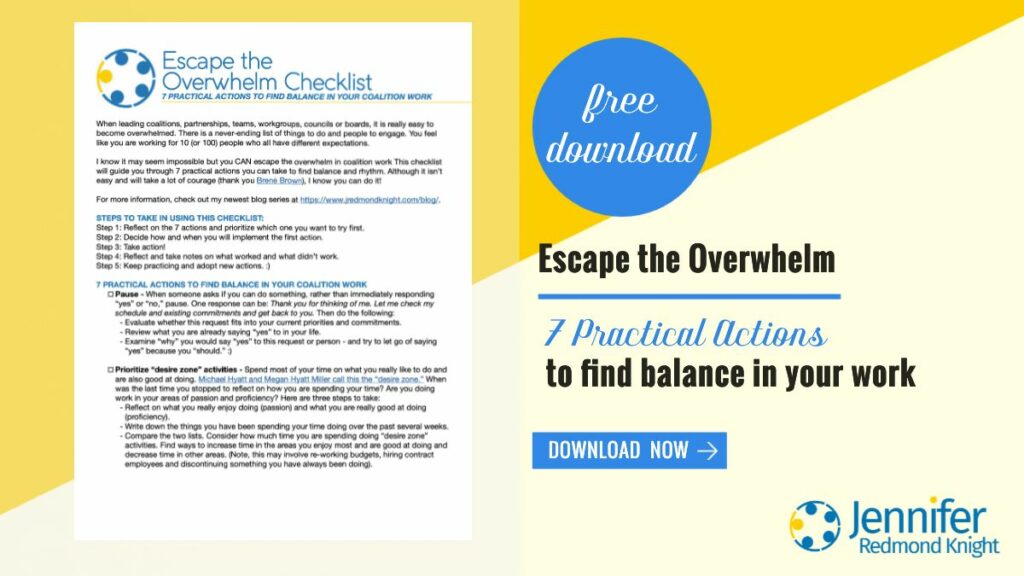This question seems so easy. We look at our calendar, and if there is nothing listed on the calendar, then we say yes. Right? Or perhaps we have something scheduled on our calendar, but it’s time to write or work on a project so it can be moved. It’s not like we have a meeting WITH someone at that time so it makes sense to be flexible and move that paper or project to another day or week. Or maybe we are concerned that if we are honest about our availability with whoever is asking, it will seem like we don’t care about them or their work so we try to move something around to make it work. Sound familiar?
It’s amazing how complicated the question “Are you available?” can be! Your answer(s) to this question can have a profound impact on your ability to do what you say is most important to you or what you have already committed to do. While I know there are ALWAYS good reasons to say yes to most people who ask you this question, I am encouraging us to be bold enough to say “no” more often so that we can say “yes” to our current commitments and highest priorities for each of us right now.
As we end 2022 and are beginning to make decisions for the new year, here are three steps to take to be ready for the next “Are you available?” question.
Schedule your priorities
This is not new advice but it is really good advice. For those of you who are leading coalitions, this may seem like a difficult thing to do because you are trying to be responsive to the needs of your coalition members and you are worried about filling up your schedule with your own priorities. However, you can schedule “meeting time” that allows you to meet those needs. One idea is to consider one or two days a week that are your “meeting days” and other days that are your “project days.” You can put both on your calendar. Perhaps you are like me and are working on several different projects. You may consider putting specific projects on your calendar or focused “project work”. I also encourage you to schedule non-work priorities as well. If you are wanting to spend more time with your children or your best friend, put that on your calendar too! Our society tends to value “work schedules” more but work is not our only priority and it’s important to schedule those other priorities too!
Commit to your schedule
Scheduling your priorities is the first step and committing to your schedule is the second step. Personally, I am able to schedule priorities well; however, when someone asks me about my availability, I can be too quick to change my plan and give that time to someone else. Although there are exceptions, we have to practice committing to our schedule if we are going to honor our priorities. If we don’t commit to our schedule, we will not meet our goals, deadlines and the commitments that we have already made. We will end up feeling overwhelmed, stressed and in order to accomplish what we need to do in time, we take time away from other priorities (our families, friends, etc…). Even if we still spend time with our other priorities (family and friends) we may be distracted with the hundred things on our list that didn’t get accomplished and have trouble fully connecting with those closest to us.
Be honest about your availability
Once you have scheduled your priorities and are willing to commit to your schedule, you have an opportunity to be honest about your availability. You also need to consider IF you need to be available at all to meet with this person or address this situation. If meeting with this person doesn’t fit with your current goals, priorities, and commitments, connect this person with someone else who may be a better fit based on their current goals, priorities and commitments. If it does make sense to meet with this person or get involved in this project, be realistic about when you can do it. You may have to wait two weeks or more to meet with them. You may need to limit your meeting to 30 minutes or consider a walking phone call rather than a video chat or in-person meeting. Overall, let your priorities, your schedule and your commitment to your priorities guide your answer when someone asks “Are you available?”
Which one of these steps do you want to practice as we finish 2022?
If you would like additional support to help with re-inventing how you work, check out my free resource, Escape the Overwhelm: 7 Practical actions to find balance in your work.

Photo by JESHOOTS.COM on Unsplash

